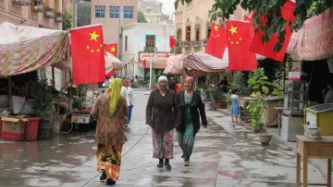Search
Content type: Case Study
In the Xingjiang region of Western China, surveillance is being used to facilitate the government’s persecution of 8.6million Uighur Muslims.
Nurjamal Atawula, a Uighur woman, described how, in early 2016, police began regularly searching her home and calling her husband into the police station, as a result of his WeChat activity.
WeChat is a Chinese multi-purpose messaging, social media and mobile payment app. As of 2013, it was being used by around 1million Uighurs, but in 2014 WeChat was…
Content type: News & Analysis
This creates a restraint on all people who merely seek to do as people everywhere do: to communicate freely.
This is a particularly worrying development as it builds an unreliable, pervasive, and unnecessary technology on top of an unnecessary and exclusionary SIM card registration policy. Forcing people to register to use communication technology eradicates the potential for anonymity of communications, enables pervasive tracking and communications surveillance.
Building facial recognition…
Content type: Long Read
The Privacy International Network is celebrating Data Privacy Week, where we’ll be talking about how trends in surveillance and data exploitation are increasingly affecting our right to privacy. Join the conversation on Twitter using #dataprivacyweek.
It is often communities who are already the most marginalised who are at risk because of the privacy invasions of data-intensive systems. Across the globe, we see the dangers of identity systems; the harms of online violence against women and the…
Content type: State of Privacy
Table of contents
Introduction
Right to Privacy
Communication Surveillance
Data Protection
Identification Schemes
Policies and Sectoral Initiatives
Introduction
Acknowledgement
The State of Privacy in Paraguay is the result of an ongoing collaboration by Privacy International and TEDIC in Paraguay.
Key privacy facts
1. Constitutional privacy protection: The constitution does not mention the word privacy but protects private life under the "right to intimacy."
2. Data protection…



